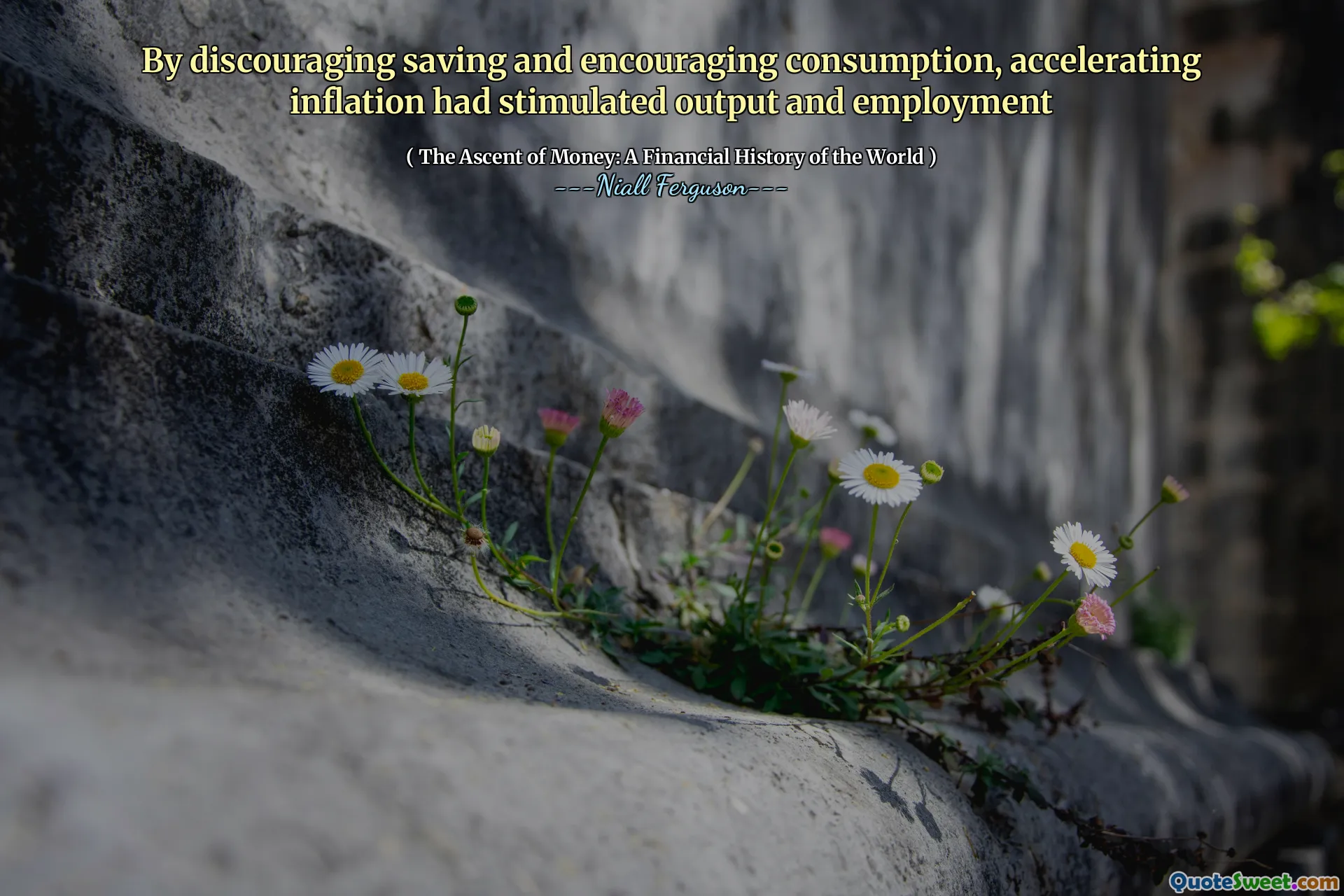
By discouraging saving and encouraging consumption, accelerating inflation had stimulated output and employment
In Niall Ferguson's "The Ascent of Money: A Financial History of the World," the author discusses the impact of accelerating inflation on economic behavior. He highlights how rising inflation tends to discourage individuals from saving, prompting them instead to spend their money. This shift in behavior can lead to increased consumption, which in turn stimulates output and creates more job opportunities in the economy.
Ferguson’s analysis suggests that inflation can have a paradoxical effect on economic activity. While it typically erodes the value of savings, it also drives people to make purchases rather than hoarding cash, resulting in a boost to production and employment rates. This insight sheds light on the complex relationship between inflation, saving, and economic growth.











